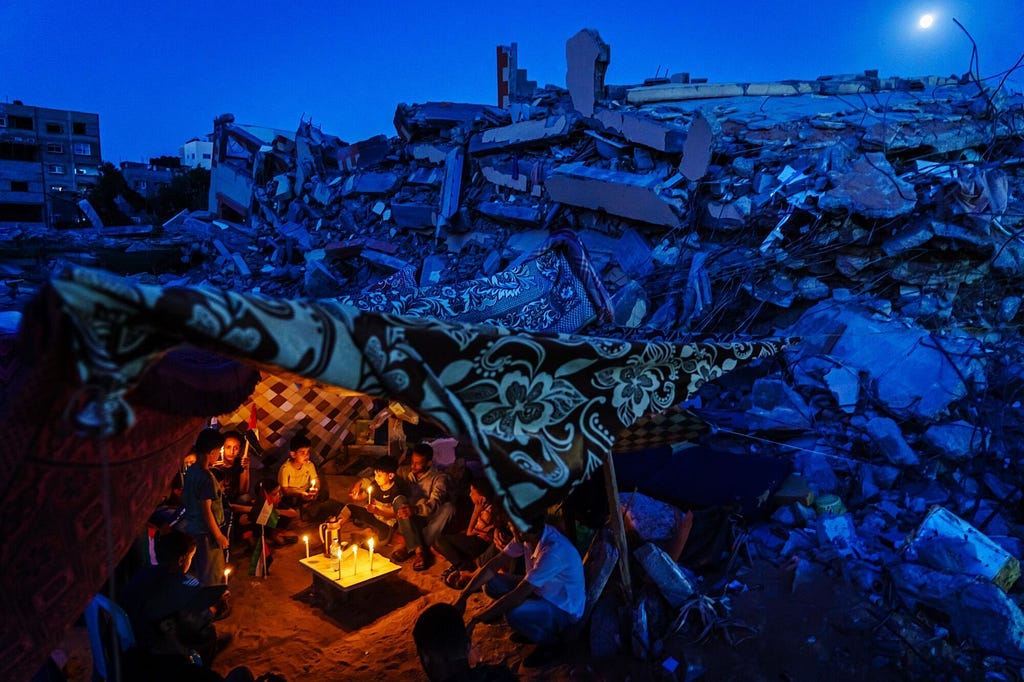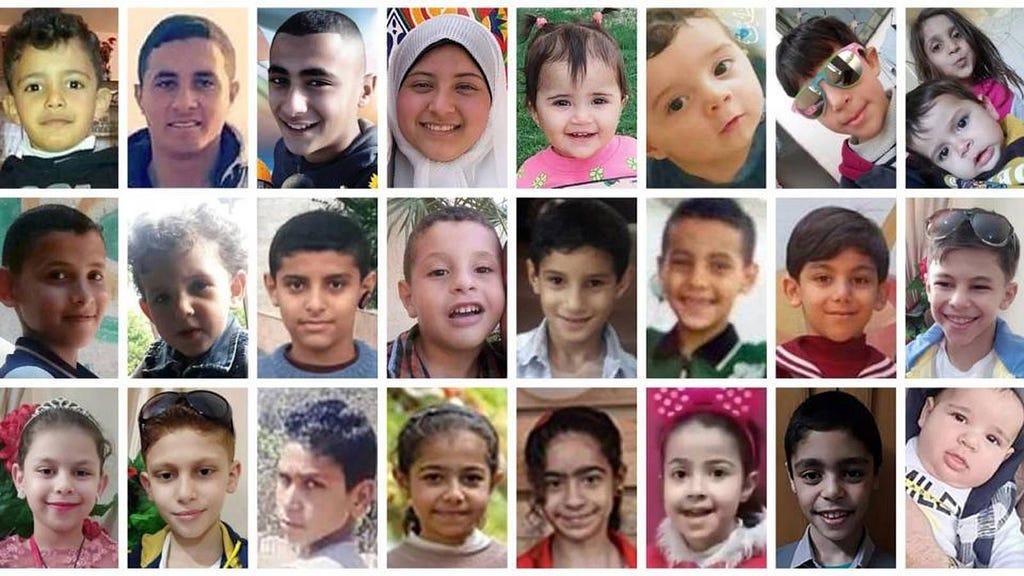
Many of the innocent, beautiful people massacred by Israel in its assault on Gaza left videos of their lives and their last moments. We should not forget them. A young courageous Palestinian woman — full of light and dignity — who chose to remain in her home knowing that soon she would be slain, actually asks us: “Will you remember our lives and tell our story when we are gone?” Shortly afterwards her life was extinguished by an American bomb, delivered by an Israeli pilot, in an American fighter plane.

As I try to make sense of this slaughter en masse, I inevitably turn towards the sacred for solace. The poem below was inspired by an old Moroccan Qasida and verses of the Holy Qur’an. These sources are outlined in brief in the last section so that, if you wish, you can explore them further. (They may also help make sense of the poem.) I hope something here will provide some sort of solace, comfort and even hope for all those who still have a heart to feel the sorrow of others, and who stand in solidarity with the oppressed. God bless you.
Note: This poem was actually written in November 2023 (and published elsewhere). But earlier today, reflecting on the Israeli massacres in Rafah and the following post about sweet little Hind, I felt I should share this again here.
Dear little Hind, this is especially for you, your family and the medics who gave their lives trying to save you. And it is for us—who can do nothing but cry for you, and pray…
Requiem for the Loved Ones of Gaza
by Munawar Ali Karim
Get worse, O troubles, so that you may be lifted For your darkness heralds the breaking of dawn In the black of this night there are gleams of starlight And from the east a new sun is soon to be born
The dark clouds of bounty carry rain That comes when its time is well-nigh For in the black of this night there are gleams of starlight And from the heavens the angels for you do cry
The blessings of our Lord are many So your soul and heart’s blood can freely roam In the dark of this night there are gleams of starlight And all the world sings aloud: You are not alone
And these blessings have a life-giving fragrance So flee to the source of that scent In the dark of this night there are gleams of starlight For your noble cause, keep strong, do not relent!
And sometimes there is an overflowing of life Ocean waves of surging depth For in the deep of the sea there is life and therein is death And by God, my loved ones, you have passed your Test
Expansion and constriction are in His command All creation is in His Hand In the dark of this night there are gleams of starlight And for you, chosen ones, paradise your Promised Land
Beginnings and ends are not random The middle is not where stories end In the dark of this night there are gleams of starlight And beautiful souls to Heaven ascend
Their wisdoms have been woven together And knitted into the weaver by the hands of fate If times for you are terrible now, do not despair Look there! The Muhammadan Presence for you awaits
Make beautiful contentment your steed, For in this domain there is both joy and strife In the dark of this night, O Hosts of Heavenly Light, Take them now — these Living Ones — to eternal bliss and blessed Life
Do your worst, O wicked ones, so that you may be requited For your evil falters before the breaking dawn And in the midst of their strife these shining souls so bright Sing in joy: “From God we come, and to Him we return.”
The Sources
The first two lines of each stanza (except the last) are taken from the begining lines of the Qasida Al-Munfarijah: The Poem of Relief, written in the 11th Century CE by the sufi saint and scholar Ibn Nahwi. I am not sure who translated these lines (that I have incorporated above) but I am most grateful to them. In some cases I modified or altered the translation of these lines to best fit the poem. Personally I found the Qasida Munfarija a true source of comfort that has helped me understand the spiritual reality of these troubled times, and to take comfort in those meanings. The opening line ‘Get worse, O troubles, so that you may be lifted; For your darkness heralds the breaking of dawn’ alludes to the fact that the night is darkest just before the break of dawn. A commentary to this spiritual poem from the Islamic sacred tradition can be found here: Qasida Al-Munfarijah: The Poem of Relief. And you can hear it being sung in its traditional way here:
The remaining stanzas of my poem were inspired by the following verses of the Qur’an:
153. O you who believe
seek help through patience and prayer;
Verily Allah is with the dauntlessly patient.
154. And say not of whoever is slain in the path of Allah
they are dead: Rather they are alive,
but you are not aware.
155. And We shall try you with some little of fear and hunger,
and loss of wealth, lives, and crops;
And give great glad tidings to the patient:
156. Those who say when any calamity strikes them,
‘Verily we are Allah’s,
and to Him are we bound to return.’
157. Those, on them shall be endless tender blessings
from their Lord in light and help, and mighty mercy,
and those are the guided.
— Qur’an (2:153–157) [Keller, N. H. (trans.) The Quran Beheld]
Peace.





Thank you for this 🤲
I am going to read the Quran and more Sufi poetry to try and regain composure
Amen. Christ was a Palestinian.